Paving Harrison Michigan
We Are Locally Owned
& Operated For 36 Years
Contact Us Today!
About Paving
Introduction
In the world of commercial real estate, paving plays a critical role in creating a functional, aesthetic, and safe environment. From providing accessibility to enhancing curb appeal, commercial property owners often turn to professional paving services to up their game. In this guide, we take a deep dive into the subject of paving, providing insights, discussing the process, highlighting benefits, and offering tips to help you make an informed decision when you reach out to paving companies near you.
Understanding Paving
Paving refers to the process of installing a solid surface on the ground, such as driveways, parking lots, and roads. Different materials, including asphalt, concrete, or block paving, are used depending on the project’s specifications and the desired outcome. Whether it’s enhancing a commercial property’s appearance or improving a roadway’s lifespan, paving lends a host of advantages which make it a critical part of property development and maintenance.
The Paving Process
The paving process kicked starts with a clear understanding of the project’s needs and expectations. A professional paving contractor studies the terrain and decides the course of action based on what material to use, the thickness of the layers required, and the type of surface finish. Post this, a roadmap is charted out, involving site preparation, base installation, application of the chosen paving material followed by finishing and sealing.
Professional Paving Services
Professional paving services bring a mix of experience, specialist tools, and detailed knowledge to the table. These professionals reduce the risk of poor installation and future repair costs, providing a long-lasting outcome. When you search for ‘paving contractors near me’ or ‘paving co near me,’ ensure that they offer services like driveway paving, road paving, and parking lot paving. You should also check driveway paving prices and assess the cost-effectiveness of choosing a specific contractor.
Benefits of Paving
Paving your commercial property provides numerous benefits. It enhances the property’s aesthetics, elevates the users’ safety, upgrades its value, and more importantly, it’s cost-effective. With various ‘affordable paving’ options available, one can efficiently manage paving driveway costs and achieve a significant return on investment over time.
Choosing the Right Paving Contractor
The success of the paving project greatly depends on the quality and professional expertise of the paving company chosen. When seeking the best ‘paving co near me,’ it’s crucial to look for specific traits such as positive customer reviews, diverse portfolio, appropriate licenses and insurance, competitive pricing, and superior customer service. Entities like ‘Blacktop Paving Inc’ exemplify these criteria, guaranteeing the best results.
Commercial Paving
Commercial paving centers on projects like parking lots, shopping centers, office complexes, schools, and more. The primary focus here is durability, aesthetics, and safety. Professional paving services often use heavy-duty material such as hot mix asphalt for these projects to withstand heavy vehicular traffic and harsh weather conditions, aligning with commercial paving needs.
Making Paving Affordable
While the costs of paving might seem daunting, there are ways to make paving affordable. From selecting the appropriate materials to preventive maintenance, clients can control the costs associated with paving. Choosing contractors offering competitive driveway paving prices and quality workmanship can be a game-changer.
Conclusion
Paving plays a pivotal role in improving commercial properties’ overall look and functionality. By understanding the process, learning about potential benefits, and choosing the right professionals, property owners can enhance their real estate assets and see substantial returns on their investment. Whether you’re inaugurating a new project or refurbishing an existing one, consider ‘paving contractors near me’ as an essential part of your plan.
If you are looking for professional paving services to transform your commercial properties, please feel free to contact us. We stand committed to providing high-quality, affordable, and efficient paving solutions tailored to your unique needs.
Contact Us Today for a FREE
Paving Quote
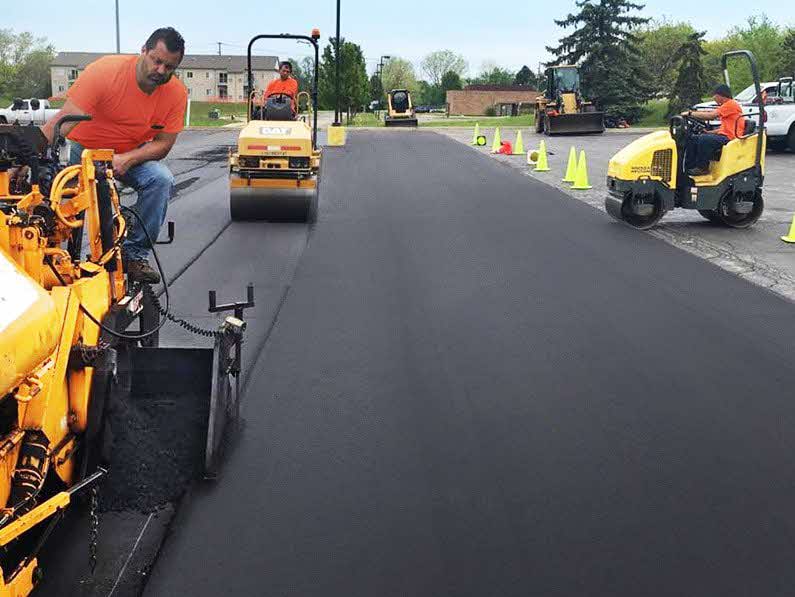
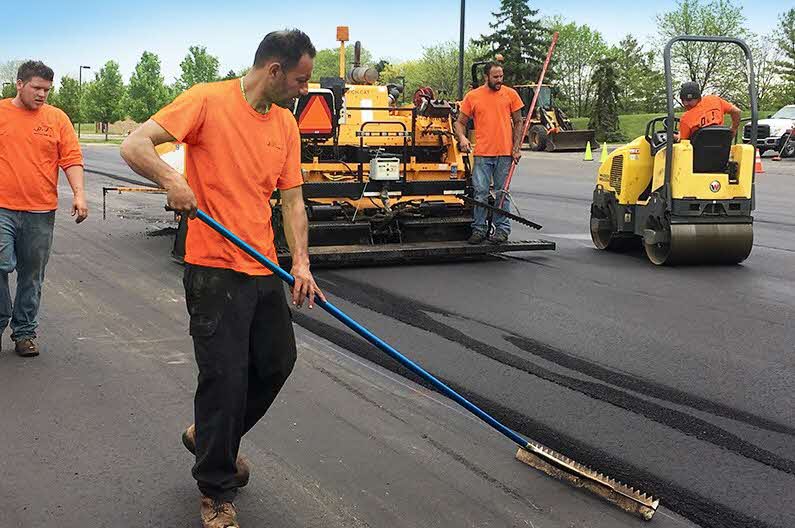
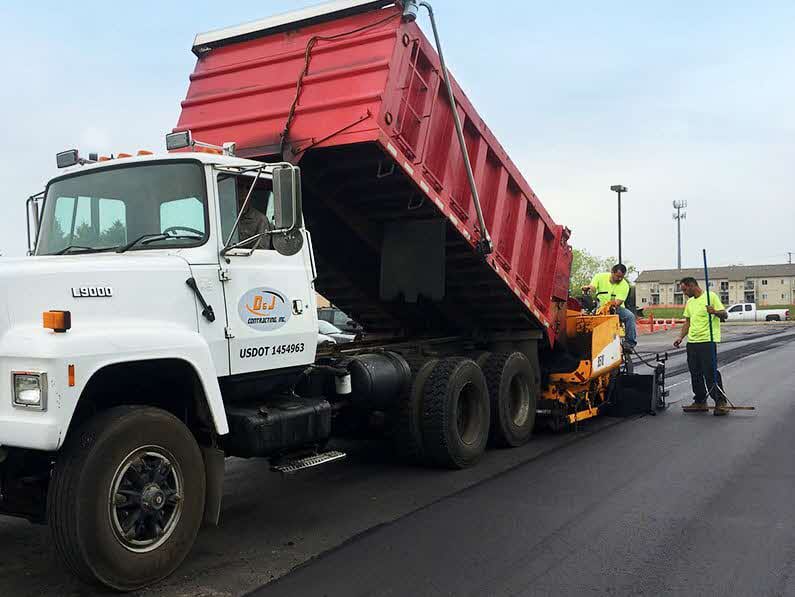
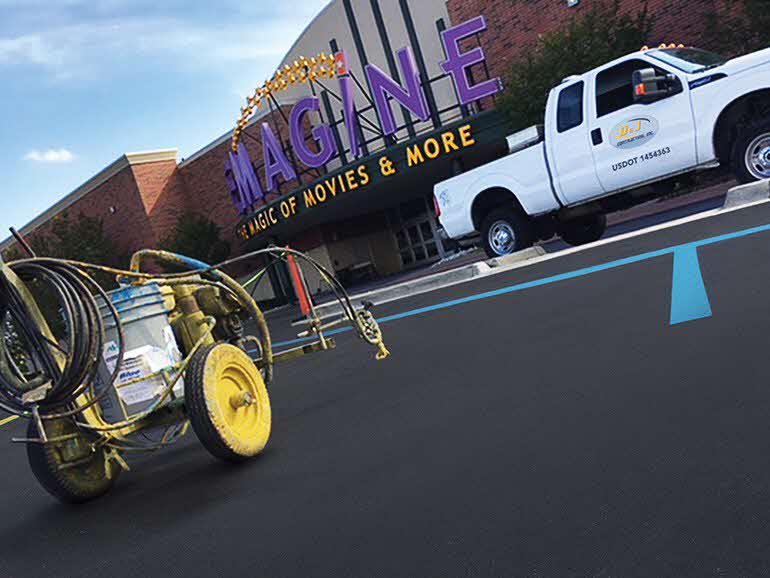
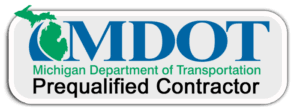

About Harrison, Michigan
History
Harrison was first designated as the new centralized location of the county seat of Clare County in 1877. It would become a replacement for Farwell, which was the first county seat when Clare County was formally organized in 1871. The Flint and Pere Marquette Railroad platted the village in 1879 and set aside property for a new county government after the previous courthouse in Farwell burned down. The Harrison post office opened on January 27, 1880 and was named after former president William Henry Harrison. The new community incorporated as a village in 1885 and later as a city in 1891.
Geography
According to the U.S. Census Bureau, the city has a total area of 4.03 square miles (10.44 km), of which 3.71 square miles (9.61 km2) is land and 0.31 square miles (0.80 km) is water.
The city’s motto is “20 Lakes in 20 Minutes” due its proximity to numerous lakes. Budd Lake is mostly located within the city limits, while the northern coastline extends into Hayes Township. The only other lake within the city limits is Little Long Lake, which also extends into Hayes Township.
Major highways
 US 127 runs south–north just outside the eastern border of the city.
US 127 runs south–north just outside the eastern border of the city.
 Bus. US 127 is a business route of US 127 that runs through the center of the city.
Bus. US 127 is a business route of US 127 that runs through the center of the city. M-61 is a state highway that enters the west-central part of the city and then runs concurrently with Bus. US 127.
M-61 is a state highway that enters the west-central part of the city and then runs concurrently with Bus. US 127.
Demographics
| Census | Pop. | Note | %± |
|---|---|---|---|
| 1880 | 129 | — | |
| 1890 | 752 | 482.9% | |
| 1900 | 647 | −14.0% | |
| 1910 | 543 | −16.1% | |
| 1920 | 399 | −26.5% | |
| 1930 | 458 | 14.8% | |
| 1940 | 727 | 58.7% | |
| 1950 | 884 | 21.6% | |
| 1960 | 1,072 | 21.3% | |
| 1970 | 1,460 | 36.2% | |
| 1980 | 1,700 | 16.4% | |
| 1990 | 1,835 | 7.9% | |
| 2000 | 2,108 | 14.9% | |
| 2010 | 2,114 | 0.3% | |
| 2020 | 2,150 | 1.7% | |
| U.S. Decennial Census | |||
2010 census
As of the census of 2010, there were 2,114 people, 913 households, and 524 families residing in the city. The population density was 568.3 inhabitants per square mile (219.4/km2). There were 1,306 housing units at an average density of 351.1 per square mile (135.6/km). The racial makeup of the city was 93.7% White, 1.7% African American, 0.8% Native American, 0.5% Asian, 0.2% from other races, and 3.1% from two or more races. Hispanic or Latino of any race were 2.5% of the population.
There were 913 households, of which 26.9% had children under the age of 18 living with them, 37.0% were married couples living together, 15.9% had a female householder with no husband present, 4.5% had a male householder with no wife present, and 42.6% were non-families. 37.2% of all households were made up of individuals, and 17.5% had someone living alone who was 65 years of age or older. The average household size was 2.18 and the average family size was 2.79.
The median age in the city was 42.1 years. 21% of residents were under the age of 18; 10.8% were between the ages of 18 and 24; 22.4% were from 25 to 44; 27.4% were from 45 to 64; and 18.4% were 65 years of age or older. The gender makeup of the city was 49.1% male and 50.9% female.
2000 census
As of the census of 2000, there were 2,108 people, 857 households, and 526 families residing in the city. The population density was 563.3 inhabitants per square mile (217.5/km2). There were 1,187 housing units at an average density of 317.2 per square mile (122.5/km). The racial makeup of the city was 94.78% White, 2.04% African American, 0.62% Native American, 0.71% Asian, 0.43% from other races, and 1.42% from two or more races. Hispanic or Latino of any race were 1.47% of the population.
There were 857 households, out of which 26.6% had children under the age of 18 living with them, 46.0% were married couples living together, 12.5% had a female householder with no husband present, and 38.6% were non-families. 35.2% of all households were made up of individuals, and 18.2% had someone living alone who was 65 years of age or older. The average household size was 2.24 and the average family size was 2.83.
In the city, the population was spread out, with 22.3% under the age of 18, 9.7% from 18 to 24, 25.6% from 25 to 44, 24.7% from 45 to 64, and 17.7% who were 65 years of age or older. The median age was 39 years. For every 100 females, there were 93.6 males. For every 100 females age 18 and over, there were 92.5 males.
The median income for a household in the city was $26,392, and the median income for a family was $35,179. Males had a median income of $32,500 versus $20,909 for females. The per capita income for the city was $15,443. About 14.1% of families and 18.5% of the population were below the poverty line, including 20.8% of those under age 18 and 15.1% of those age 65 or over.
Education
The city of Harrison is served entirely by Harrison Community Schools, which is centrally located within the city and serves a large part of the northern portion of the county.
Mid Michigan Community College has a Harrison campus located just to the southeast in Hatton Township.
Contact Us Today for a FREE
Paving Quote
Our Paving services are available in Harrison as well as all of Macomb County.
Our dedicated team at D&J Contracting Inc is at-the-ready to provide you with great customer service and first class Paving services. Reach out to us at (586) 954-0008 to discuss your Paving needs today!